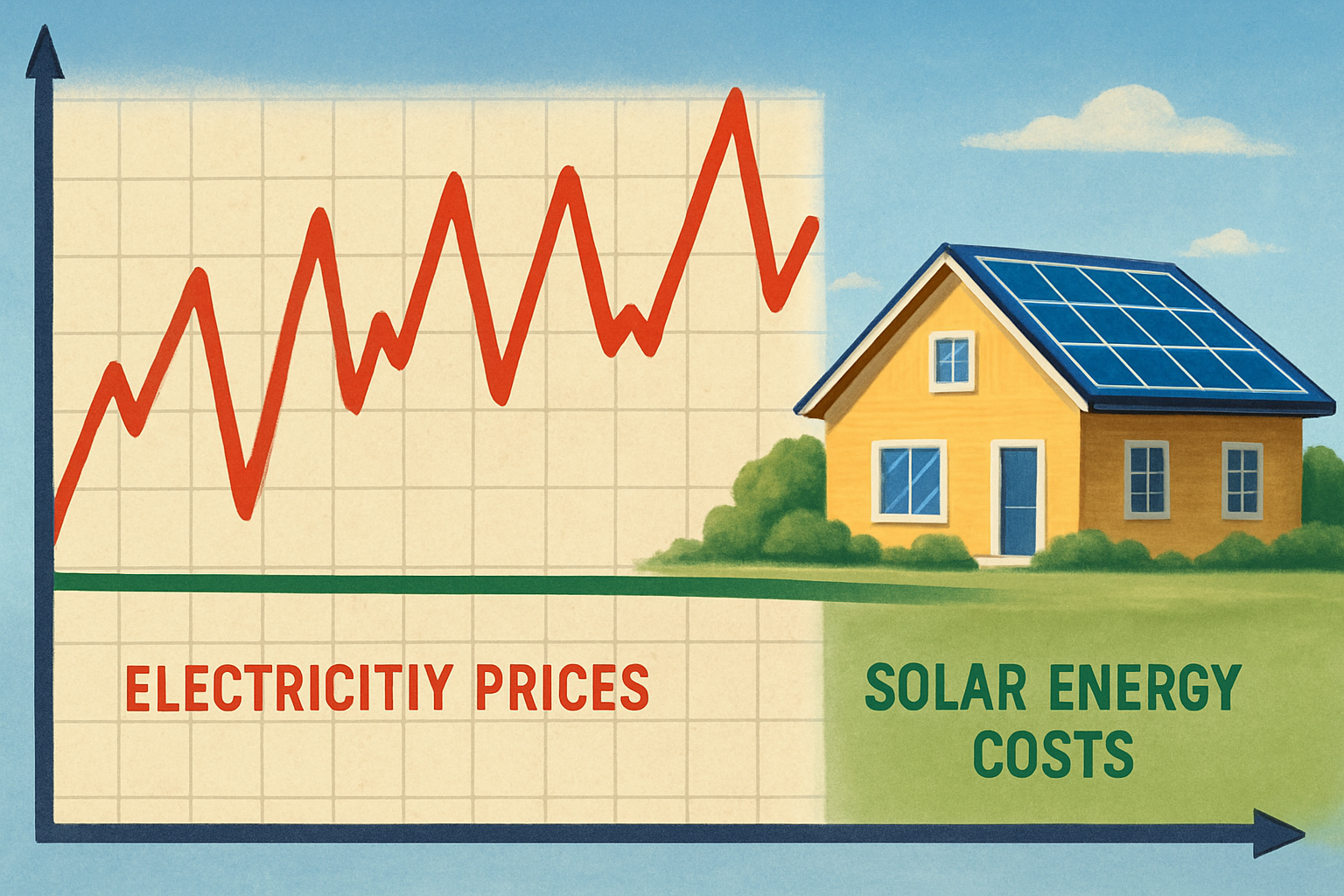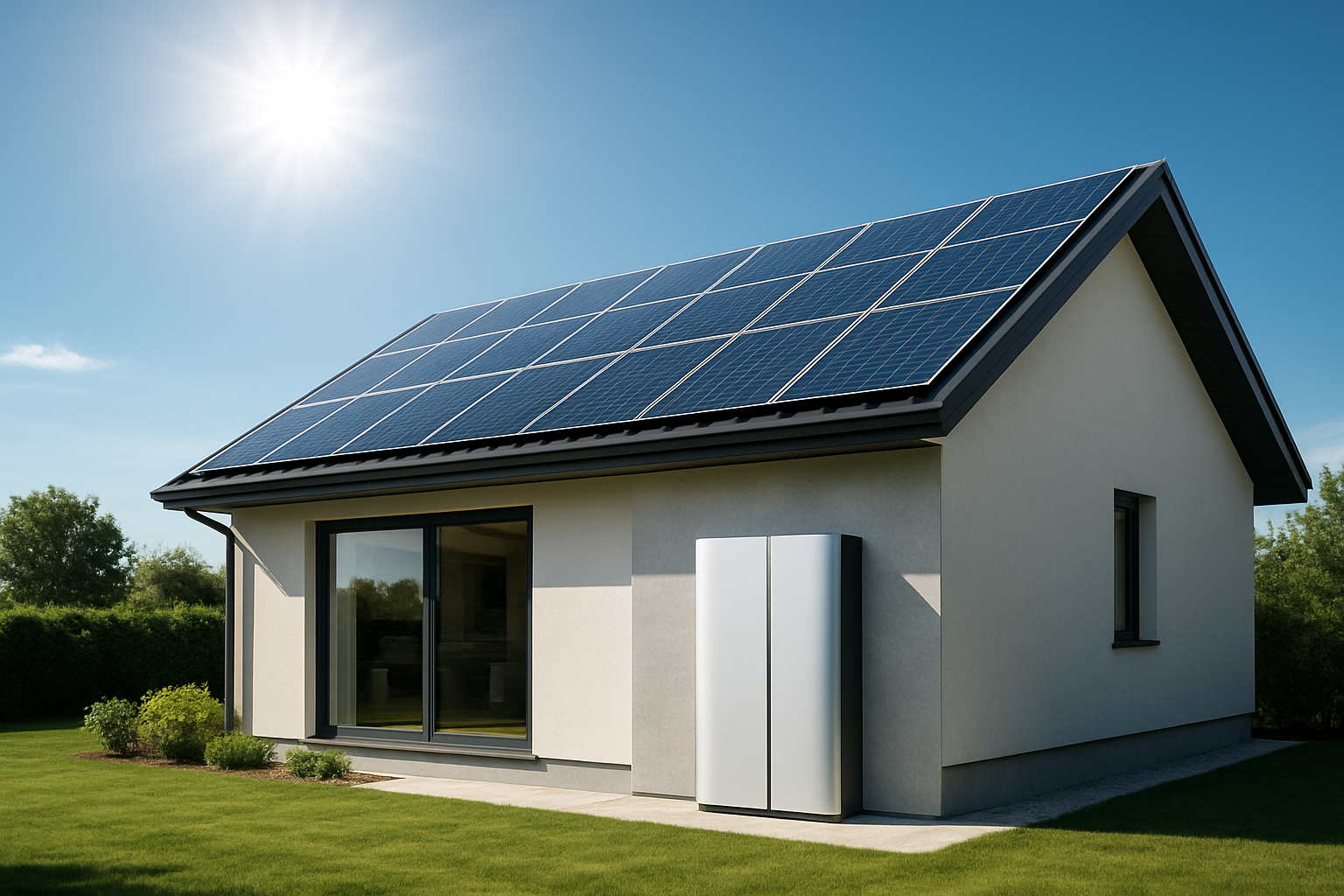Adopting solar energy presents a compelling financial and environmental choice for homeowners. When you add an electric vehicle (EV) to the picture, the advantages multiply. Powering your EV with sunlight transforms your home into a personal charging station, offering significant long-term savings and a greater degree of energy independence. This article explores the real financial impact of solar panels for EV owners, focusing on the substantial benefits you can expect over two decades.
The Synergy of Solar and EVs: Driving Towards Energy Independence
Reduced Fuel Costs and Electricity Bills
Charging an electric vehicle at home significantly increases your household's electricity consumption. However, this increased demand becomes an opportunity for substantial savings when paired with solar panels. Instead of paying utility rates for your vehicle's fuel, you generate your own clean electricity directly from your roof.
Consider the typical EV owner. While annual mileage varies, some studies indicate an average electric car travels around 8,740 miles per year . Other analyses suggest U.S. EVs average about 12,400 miles annually , or even 7,165 miles per year . An electric vehicle consumes approximately 0.346 kWh per mile on average . This translates to a notable portion of your overall electricity bill. For example, driving 10,000 miles a year would require about 3,460 kWh. With the average residential electricity rate in the U.S. around 17.47 cents per kilowatt-hour (kWh) as of August 2025 , that annual charging cost could be approximately $604 if purchased from the grid.
Here is an illustrative comparison of annual EV charging costs:
| Scenario | Annual EV Electricity Consumption (kWh) | Average Grid Electricity Cost (USD/kWh) | Annual Charging Cost (USD) | Annual Savings (USD) |
|---|---|---|---|---|
| Charging from Grid | 3,460 (for 10,000 miles) | $0.1747 | $604 | $0 |
| Charging with Solar | 3,460 (for 10,000 miles) | $0.00 (after payback) | $0 | $604 |
By generating this electricity with solar panels, you effectively eliminate or drastically reduce this recurring expense, turning a significant household cost into a long-term saving. This direct offset of a large electricity load accelerates the financial payback of your solar investment.
Energy Independence and Grid Resilience
Generating your own power for your electric vehicle offers more than just financial savings; it provides a profound sense of energy independence. You become less reliant on the grid, shielding yourself from unpredictable utility rate fluctuations. The average electricity rate for U.S. homeowners increased by 2.6% between March 2024 and March 2025 . From 2024 to 2025, residential electricity rates saw a 3.7% increase . With solar, you gain control over your energy supply, a valuable asset in an evolving energy landscape.
Moreover, integrating energy storage with your solar system ensures resilience. Should a grid outage occur, your stored solar energy can continue to power your home and charge your EV, providing peace of mind and essential functionality when others are without power.

Calculating Your Solar Payback: A 20-Year Horizon
Understanding Upfront Costs and Incentives
An initial investment is necessary for a solar PV system and EV charging infrastructure. However, various incentives significantly reduce this upfront cost. The federal government offers a tax credit for residential EV charger installation, covering 30% of the cost, up to $1,000 . Many states and local utility companies also provide additional tax credits, rebates, or grants for both solar installations and EV charging equipment . You should explore programs available in your specific area.
The cost of solar technology has seen dramatic reductions over the years. Solar PV module prices declined by roughly 80% since 2009 . Between 2010 and 2024, the total installed cost of utility-scale PV decreased by 87% . In the second half of 2024, residential solar panel prices plummeted 30% compared to the previous year , making solar more accessible than ever.
Long-Term Savings and Return on Investment
Solar panels are a long-lasting asset. Most solar panels are designed to operate for 25 to 30 years or more . They maintain a high level of efficiency over time, with many manufacturers guaranteeing at least 80% to 90% of original capacity after 20 years . This means your system continues to produce significant amounts of free electricity for decades.
For EV owners, the consistent, substantial demand for electricity makes the financial returns even more pronounced. The electricity you generate powers your vehicle, directly avoiding utility purchases. Over a 20-year period, these avoided costs accumulate into significant savings, often leading to a complete payback of your initial investment and then generating pure profit. The reliable output of solar panels, coupled with the ongoing need for EV charging, creates a predictable and robust return on your investment.
Impact of Electricity Rate Hikes
One of the most compelling aspects of solar ownership is its ability to hedge against rising electricity rates. Unlike traditional utility bills, which are subject to annual increases, your solar-generated electricity comes at a fixed, predictable cost once your system is installed. As mentioned, U.S. residential electricity rates have been rising, demonstrating the value of this hedge . This stability in energy costs provides long-term financial security, especially important when you have a predictable, large electricity load from charging an EV.
Optimizing Your System for EV Charging
Essential Solar PV System Components
A residential solar PV system typically consists of solar panels that convert sunlight into direct current (DC) electricity, and a solar inverter that transforms this DC electricity into alternating current (AC) for your home's use. Selecting high-performance, reliable components is foundational for a robust and efficient system that consistently meets your EV charging demands.
Integrating Energy Storage for Maximized Savings
To truly maximize the benefits of solar for EV charging, consider integrating a home energy storage system. These systems, often utilizing advanced lithium iron phosphate (LiFePO4) batteries, store excess solar energy generated during the day. This stored energy can then be used to charge your EV at night, or during peak electricity rate periods when grid power is most expensive. LiFePO4 batteries are known for their high performance, safety, and reliability, offering an operational lifespan of 10 to 15 years, or even up to 20 years depending on the manufacturer and usage . This allows you to optimize your energy consumption, reduce reliance on grid electricity during costly hours, and enhance your home's overall energy independence.
Smart Charging and Home Energy Management
Modern technology offers smart charging solutions and comprehensive home energy management systems. These intelligent systems can prioritize EV charging when solar production is abundant or when utility rates are lowest, typically during off-peak hours overnight . By automating these processes, you ensure your EV is charged efficiently and cost-effectively, further enhancing the financial returns from your solar investment and seamlessly integrating your vehicle into your home's energy ecosystem.
Beyond the Bills: Broader Benefits
Enhanced Home Value
Installing an owned solar energy system is a significant home improvement that can increase your property's value. Recent research indicates that homes with owned solar panels can sell for 5% to 10% more than comparable homes without solar in some regions . A 2025 study found that homes with solar panels sold for 6.9% more on average . This value increase often exceeds the cost of the installation itself, adding another layer to your long-term return.
Environmental Contribution
Powering your electric vehicle with solar energy greatly reduces your carbon footprint. You contribute to cleaner air and a healthier planet by relying on a renewable source for transportation. This commitment to sustainability offers both personal satisfaction and a positive impact on the environment.
A Sustainable Future for EV Owners
For electric vehicle owners, embracing solar energy is more than an energy choice; it is a strategic financial decision and a step towards lasting energy independence. The synergy between solar panels and EV charging creates a powerful pathway to significantly reduce electricity bills, hedge against future rate increases, and secure a predictable energy future for your home and vehicle. With long-lasting solar panels and advanced energy storage systems, you are investing in reliable, scalable energy solutions that provide substantial benefits for decades to come.





Leave a comment
All comments are moderated before being published.
This site is protected by hCaptcha and the hCaptcha Privacy Policy and Terms of Service apply.